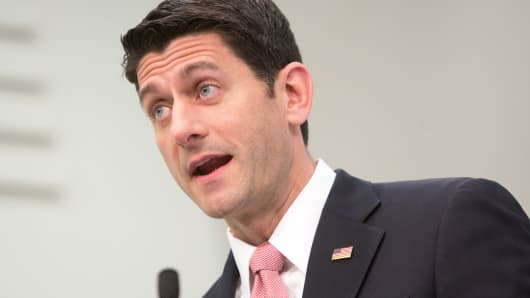When families put together a spending plan, it used to be that rent or a mortgage consumed the largest portion of the family budget. In today's economy, however, healthcare is quickly becoming the largest expense.
An employer-sponsored health plan will now exceed $25,826 for a family of four in 2016 – triple the price it was in 2001, according to the new Milliman Medical Index, an annual report on healthcare spending. Although employers carry about 57 percent of the cost, families will pay at least $11,033 this year.
In comparison, average housing costs for owner-occupied homes run about $12,552 annually and rental units are $11,208, according to the U.S. Census Bureau's latest data.
With healthcare becoming so expensive for families and employers, many were hoping the Affordable Care Act would have reduced healthcare spending. Unfortunately, however, the ACA failed to address the biggest driver of costs: wasteful disbursements.
Doctors will tell you every day they order more tests, exams and medications than are clinically necessary. They will order MRIs, x-rays, blood work, CT scans or prescriptions to reduce anxiety in their patients and eliminate the possibility of a lawsuit. This is known as wasteful, defensive medicine.
For example, a patient enters an emergency room with chest pains and a simple blood test shows no elevated enzymes which would indicate a heart attack. But because of fear about a misdiagnosis, the family urges additional testing. After ordering additional, expensive tests, the physician indicates the patient has indigestion and sends the patient home with proper medication.
On Wednesday, the Republican House led by Speaker Paul Ryan proposed an alternative to the ACA. Several of those free market ideas such as expanding Health Savings Accounts, block granting Medicaid and turning Medicare into a voucher plan could bring some restraints on spending but none will truly put the brakes on defensive medicine.
A national survey released last year by the Official Journal of the Congress of Neurological Surgeons found that more than 75 percent of neurosurgeons said they practice defensive medicine. Gallup says one in four healthcare dollars is spent on defensive medicine.
To make healthcare costs more manageable, we need to decrease such waste. One idea now before five state Legislatures would abolish the medical malpractice system so doctors would no longer feel the need to practice such defensive medicine. Instead, each state would replace its malpractice system with a no-blame, administrative model similar to workers compensation.
In the new system, patients who have been harmed would not have to endure an extensive litigation system. Instead, an injured patient would file a claim which would be analyzed in a timely manner and resolved by a panel of healthcare experts and an administrative law judge. If the panel concluded the patient suffered a medical injury, he or she would be fairly and quickly compensated based on traditional payouts in the legal system.
BioScience Valuation, a healthcare economics firm, projects an annual savings of $453 billion in healthcare costs if we adopt a PCS model nationwide we would see a reduction in defensive medicine's impact on healthcare costs.
Doctors would also feel empowered to work on patient safety as they would not be in fear of admitting their errors as their personal wealth would not be in jeopardy. As a result, we would have better outcomes for patients as hospitals and physicians could work together to adopt best practices.
Health insurance is not going to get any cheaper for most of us. New data from the Kaiser Family Foundation finds that health insurance premiums are expected to rise an average of 10 percent in 14 metropolitan areas in 2017. In some states, such as Georgia, some carriers such as Humana are seeking a 65 percent rate increase.
If we are to bring sanity to healthcare spending and restore it to its proper place in our all our budgets, it's time to tackle waste. A bold move to discourage doctors from picking up their pen and ordering what is unnecessary is just is what is needed to make healthcare affordable for individuals and business alike.
Commentary by Jeff Segal, MD, a North Carolina neurosurgeon, CEO of Medical Justice and a board member of the non-profit Patients for Fair Compensation. Follow him on Twitter @jeffsegalmd.


